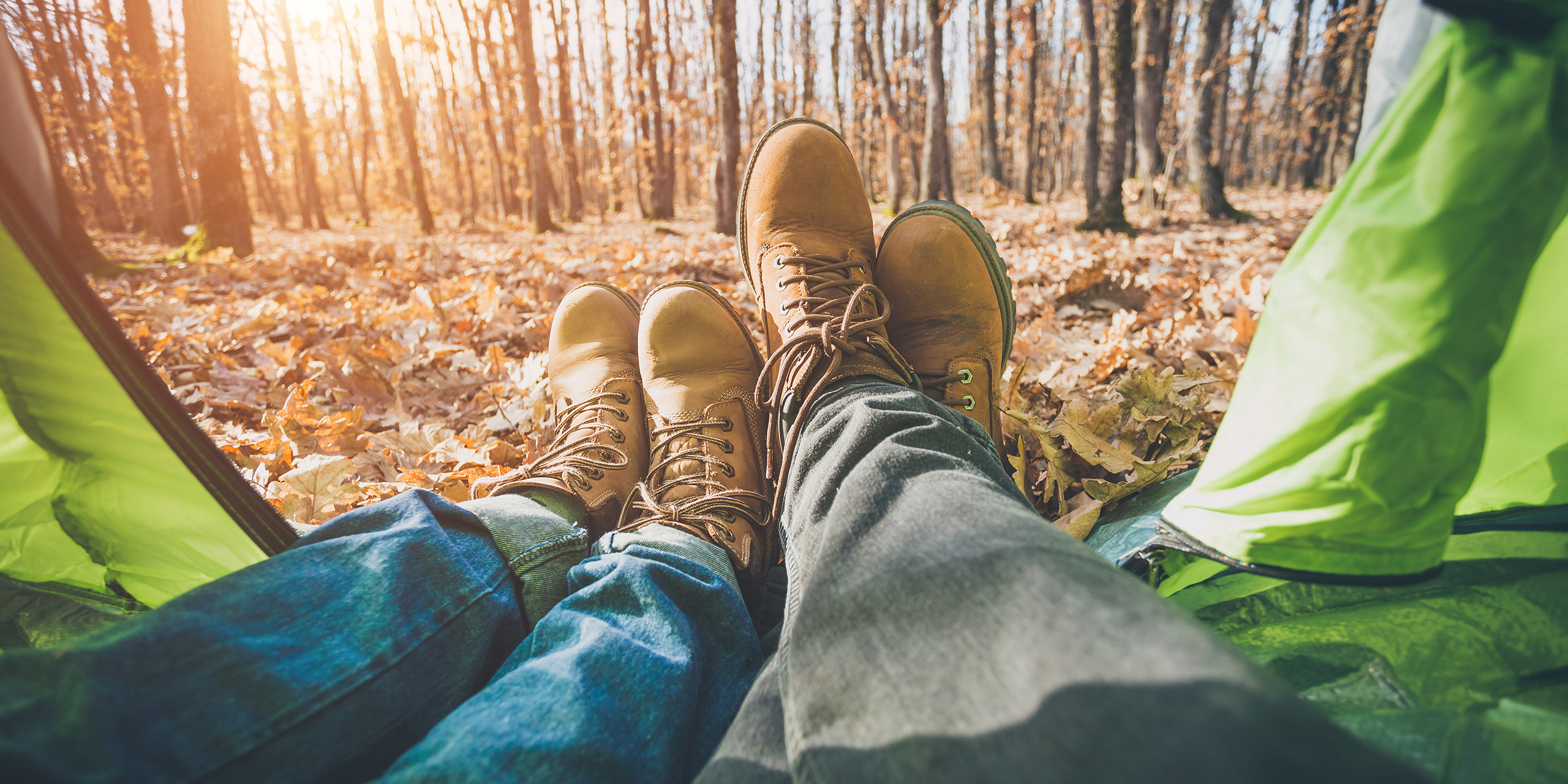Can’t Sleep? Grab your Gear and Head for the Hills

Have you been overloaded at work, burning the midnight oil? Do you find yourself staring at your cell phone into the late evening hours, scrolling through just a few more Instagram or Facebook posts? Has your sleep schedule been irregular and unpredictable? If you answered yes to any of these questions, it’s time to reach into the attic and grab your tent poles and s’more skewers! While camping may not be everyone’s cup of tea, it can work wonders for destressing, relaxing, and even resetting our internal clocks, a vital part of getting healthy sleep. But how? It has to do with the way our bodies are programmed.
Sleeping with the Sun
Our bodies are designed specifically to release certain hormones like melatonin when our environment gets dark (I.e., when the sun goes down). And then we’re told to wake up as we are re-introduced to light in the morning (hello sunrise!). This worked fine and dandy for mankind until electricity was introduced. Once we stopped using the sun as our guiding clock for sleep and wake times, our bodies began a roller coaster of trying to figure out when is the most appropriate time to go to bed and wake up. Add on the ever-present smart phones on our night stands, the TVs in our bedrooms, and our work laptops somehow following us home at night, and we’ve got a recipe for too much light at all the wrong hours. What to do about this conundrum? Take a weekend to live like a pioneer.
Set Up Camp
It’s not just a fun idea to go camping — it’s scientifically proven to help you get to bed on a consistent schedule. A 2017 study out of Colorado found that those who camped out in the summer fell asleep 1.8 hours earlier than those in the study who stayed home. They did the same observations during the winter solstice and saw that the campers showed melatonin being released in their bodies 2.6 hours earlier than before the experiment.
While the sample size of the study was small, it provides some interesting insights into how quickly our bodies adapt to a new sleep schedule, and how avoiding the artificial lighting in our homes for a weekend could get our rhythms on a set schedule again.
A Camper’s Life is (Not) For Me
If the idea of spending a weekend without the comforts of modern life sounds more agonizing than relaxing, you can take the findings of the camping study and apply them to your own home. Kenneth Wright, the lead researcher on the study, described how to change our day-to-day lives to achieve a circadian rhythm reset.
“Our findings highlight an opportunity for architectural design to bring more natural sunlight into the modern build environment and to work with lighting companies to incorporate tunable lighting that would be able to change across the day and night to enhance performance, health, and wellbeing.”
To apply this experiment to your own life, try to dim your lights an hour or two before bedtime, and even consider implementing smart lights that mimic natural sunlight for your morning wake-up. You can also try to get as much natural light as you can when you first wake up. Open those blinds and let the sun stream in as you get ready in the morning. At night, apply a blue light filter to your smart phone, or wear blue light filtering glasses to block out all blue light from any device in your home.
If you’re inspired to get out and go camp this weekend, try and leave the smart devices at home. Enjoy the solitude and peace that the great outdoors has to offer. As the sun sets, you may start to feel sleepy much earlier than usual. Embrace it and go to bed with nature, and you’ll find yourself waking up with the sunrise as well. By the time you get back home, your rhythm may be reset, and you can try to keep it in tact with our other helpful at-home tips.